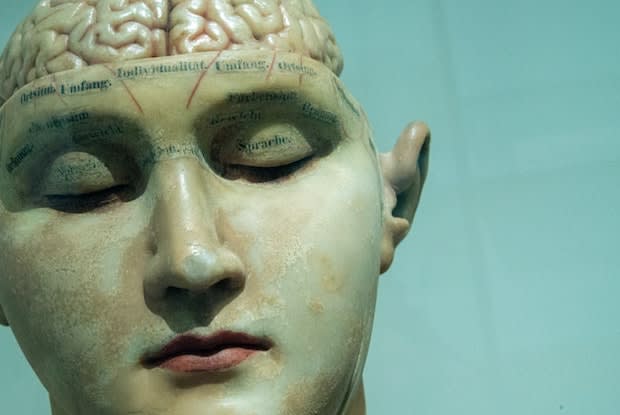Table of Contents
I. The Prevalence of Depression
The Prevalence of Depression
Depression is classified as a feeling of persistent sadness or hopelessness for several weeks, months, or years. The World Health Organization estimates that there are over 264 million people around the world who are affected by this common mental disorder. If left untreated, depression can have serious consequences. Suicide is the leading cause of death in people between the ages of 15-29. [1]
Depression can be caused by several things in a person’s life. This disease does not have a singular cause, which can make diagnosis and treatment challenging in some cases. Regardless of the cause of your depression, there are many antidepressants like Cymbalta (duloxetine) and Lexapro (escitalopram)
that can increase serotonin in the brain. Along with these drugs, therapy is also beneficial in the treatment of depression. If you think you are at risk for depression, it is essential to speak with your doctor to catch it early. Read on to learn more about factors that may increase your risk of depression. [1]
How Brain Chemistry Affects Depression
If brain chemistry is not working properly, then the brain's pleasure centers are not properly stimulated. Neurotransmitters are natural chemicals that help communication between nerve cells in the brain. For some people with depression, an imbalance in these chemicals can lead to symptoms of depression. A chemical imbalance in the brain is typically not the sole cause of depression but may contribute to symptoms.

Norepinephrine and serotonin are two common neurotransmitters. Serotonin is vital in the functioning of your body. Serotonin helps regulate mood, sleeping, eating, and digestion. Low levels of serotonin are typically linked to depression. If serotonin levels are stable in the brain, you will feel more focused, emotionally stable, and happier. If your serotonin is low, you may be prescribed a selective serotonin and norepinephrine reuptake inhibitor (SSNRI) like Cymbalta. These drugs work by restoring the balance of natural substances in the brain.
Hormone Fluctuations and Mood Swings
In general, women experience depression more frequently than men. Scientists and researchers assume that fluctuations in hormones may be partly responsible for depression in women. Women can experience hormone shifts during menstrual cycles, menopause, pregnancy, and birth. Postpartum depression occurs in 1 in 9 women in the United States.
Many experience overwhelming feelings after welcoming a new life into the world, but postpartum is more severe than the typical “baby blues.” Those with postpartum may experience excessive crying, loss of appetite, difficulty bonding with the baby, and intense irritability. One 2010 study cites that men can also be affected by postpartum. Around 4 percent of fathers report depression in the first year after having a child. [2]
Along with female hormones, thyroid hormones in both men and women can affect depression. If you have hyperthyroidism (overactive thyroid) or hypothyroidism (low-functioning thyroid) you may experience anxiety or depression. If you are feeling depressed, you may want to get your thyroid levels checked to ensure the gland is functioning properly.
Depression from Trauma and Abuse
Trauma and abuse are some of the more well-studied causes of depression. If a person experiences abuse in their childhood, they are at risk of developing mental illness, including depression. Psychologists typically look at Adverse Childhood Experiences (ACEs) to determine if depression is a risk factor in a person’s life. ACEs involve abuse, neglect, and household dysfunction (divorce, domestic violence, mental illness, and substance use in the home).
Some scientists believe that experiencing abuse as a child can permanently alter the brain and its connectivity structure. Altering the brain structure can affect neurotransmitters and lead to a depletion in serotonin. Other studies suggest that neuroendocrine function can be altered in people exposed to high levels of stress as children. If you experienced any ACEs as a child, talking to a licensed psychotherapist can help you work through your past experiences.

Poverty-related Depression
Experiencing poverty at any age can have profound mental health effects. Poverty can lead to extreme stress in a person’s life, which can easily translate to depressive symptoms. One 2015 survey by the American Psychological Association found that 64 percent of adults in the United States cite money as a source of significant stress. It was also found that those who live in poverty are twice as likely to experience symptoms of depression than those who live above the poverty line.
The inability to afford basic necessities also leads to a lack of access to social services like therapy. If you cannot seek help for your depression because you are poor, then you can end up in a cycle of socioeconomic disadvantage, which is hard to break. When possible, talk to your doctor about any therapists that offer a sliding scale payment plan.
Grief and Depression
Unfortunately, grief and death are unavoidable facts of life. If you experience an event like the loss of a friend or loved one, you may go through several stages of grief. In most cases, grief moves slowly toward feelings of resolution and hopefully, acceptance. Every death is different, and your reaction to a loss may be more severe if someone dies unexpectedly or violently. In these cases, depression can be linked to post-traumatic stress disorder.
A death can trigger depressive symptoms in anyone, but if you are already experiencing depression, then grief can lead to a dangerous drop in mood. It is vital to stay on top of your depression condition if a death occurs. Talk to your doctor or psychiatrist about ways to deal with grief in a constructive and healthy way.

The Link Between Lifestyle Choices and Depression
Many studies suggest that your diet and exercise regime have a massive impact on your mental health. Nutritional psychiatry is an entire field of medicine dedicated to the connection between mental health and diet. Studies find that a diet filled with fruit, vegetables, whole grains, olive oils, and a low intake of animal products can potentially decrease your risk of depression.
On the flip side, consuming sweets, refined grains, butter, and processed meats may increase your risk of depression. Obviously, it is nearly impossible to eat healthily all the time, but it is important to avoid added sugars and fats whenever possible. Eating everything in moderation is the key.
Exercise has a direct link to the pleasure centers of the brain. Participating in physical activity can decrease stress hormones and increase endorphins, which can give your mood a natural boost. Diet and exercise are inseparably linked because if you eat unhealthily, you gain weight and are less likely to exercise. If you are overweight and sedentary then you may become depressed. Not exercising can lead to feelings of isolation and low self-esteem. If you do not know where to start in your exercise journey, talk to your doctor about a safe regime for you.
The content provided in this article is based on thorough research and in some cases, reviewed by a medical professional. Our goal for the information is to provide helpful, general health informational. It is not intended as a substitute for professional medical advice.
